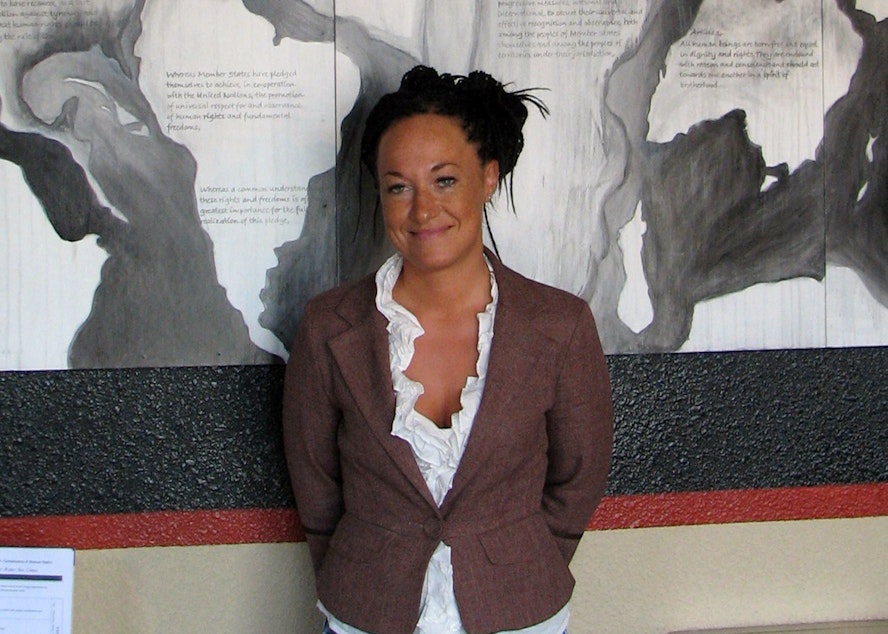Is Spokane's NAACP Leader Passing For Black?

The head of the NAACP in Spokane, Rachel Dolezal, claimed she was black. She said she was African-American in job applications to the city, and she even did an online video lecture on African-American hairstyles.
But Dolezal’s mom says she’s white – and shared a photo of her daughter’s birth certificate and photos of Dolezal as a child in Montana, when she had straight blonde hair.
Dolezal has been a prominent leader on civil rights causes in Spokane. She also teaches part-time in Eastern Washington University’s Africana studies program.
Phyllis Fletcher, managing editor of the Northwest News Network, has reported on the history of people trying to pass as a different race. She said that passing is when you either tacitly or overtly let people think that you are another race.
Related: 'You Couldn't Tell My Father He Was White. Believe Me. I Tried.'
Sponsored
“The history of passing in the U.S. is mostly black people passing for white,” she said. “It’s typically and historically done to evade injustice in one form or another.”
Fletcher said that historically, people who pass have had the protection of people around them who wanted to see them succeed.
“Everyone who passed in history had people who knew and didn’t say anything,” she said. Not so in this case.
“Some people just say if you’re white, be white, end of story,” she said. “Other people say well if it’s for entertainment, it’s OK. Or if someone really gets the culture, it’s OK.”
But people aren’t as comfortable with passing if they see someone as advancing an agenda – or they sense someone is deliberately changing their personal narrative.
Sponsored
Members of the black community in Spokane have wondered whether Dolezal was actually black – possibly because she wasn’t able to answer questions about her background, Fletcher said.
“Part of what you go through as a black person in a smaller town, or any city with a small black population – there is a kind of social vetting that goes on,” she said. “Who are your people? How did you come to move here? Who is your dad? Who is your mom? You hear a lot of those kinds of questions if people feel like they’re not getting the right answers, that suspicion.”
The NAACP is taking a wait and see approach. The national organization in Baltimore released a statement calling it a legal issue with her family and said racial identity is not a qualifying factor for leadership in the organization.
The Spokane branch is holding a meeting Monday and members say they hope to hear Dolezal’s version of the story. But Dolezal remains president of the local chapter.

